Authors & editors
ANU Press has collaborated with a diverse range of authors and editors across a wide variety of academic disciplines. Browse the ANU Press collection by author or editor.

Howard's Long March »
The Strategic Depiction of China in Howard Government Policy, 1996–2006
Authored by: Roy Campbell McDowall
Publication date: March 2009
Australia’s strategic depiction of China has assumed increased importance as it attempts to harmonise economic interests (focusing on China) with security interests (primarily the United States). In this period of strategic transition, how Australia incorporates the rise of China into its existing security commitment under ANZUS has become a delicate issue. This investigation follows the intriguing evolution of the Howard Government’s depictions of China, and reveals a complex and calculated strategy that successfully transformed a potentially volatile conflict of interests into a functional foreign policy.
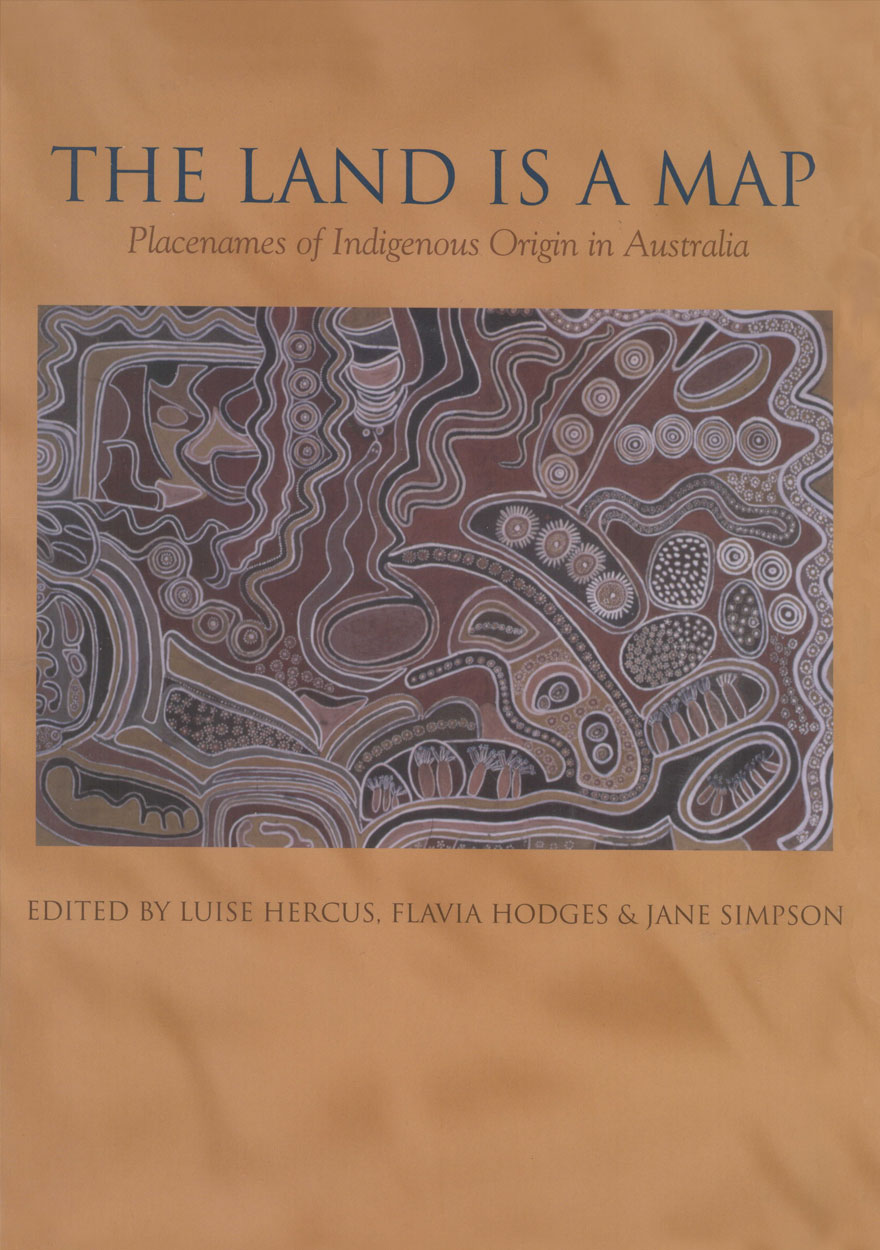
The Land is a Map »
Placenames of Indigenous Origin in Australia
Edited by: Luise Hercus, Flavia Hodges, Jane Simpson
Publication date: March 2009
The entire Australian continent was once covered with networks of Indigenous placenames. These names often evoke important information about features of the environment and their place in Indigenous systems of knowledge. On the other hand, placenames assigned by European settlers and officials are largely arbitrary, except for occasional descriptive labels such as ‘river, lake, mountain’. They typically commemorate people, or unrelated places in the Northern hemisphere.
In areas where Indigenous societies remain relatively intact, thousands of Indigenous placenames are used, but have no official recognition. Little is known about principles of forming and bestowing Indigenous placenames. Still less is known about any variation in principles of placename bestowal found in different Indigenous groups. While many Indigenous placenames have been taken into the official placename system, they are often given to different features from those to which they originally applied. In the process, they have been cut off from any understanding of their original meanings. Attempts are now being made to ensure that additions of Indigenous placenames to the system of official placenames more accurately reflect the traditions they come from.
The eighteen chapters in this book range across all of these issues. The contributors (linguistics, historians and anthropologists) bring a wide range of different experiences, both academic and practical, to their contributions. The book promises to be a standard reference work on Indigenous placenames in Australia for many years to come.

Humanities Research: Volume XV. No. 1. 2009 »
Diversity, Integration and Citizenship
Edited by: Adam Berryman, Kate Mitchell
Publication date: March 2009
Humanities Research is an internationally peer-reviewed journal published by the Research School of Humanities at The Australian National University. The Research School of Humanities came into existence in January 2007 and consists of the Humanities Research Centre, Centre for Cross-Cultural Research, National Europe Centre and Australian National Dictionary Centre. Launched in 1997, issues are thematic with guest editors and address important and timely topics across all branches of the humanities.
Download for free
Not available for purchase
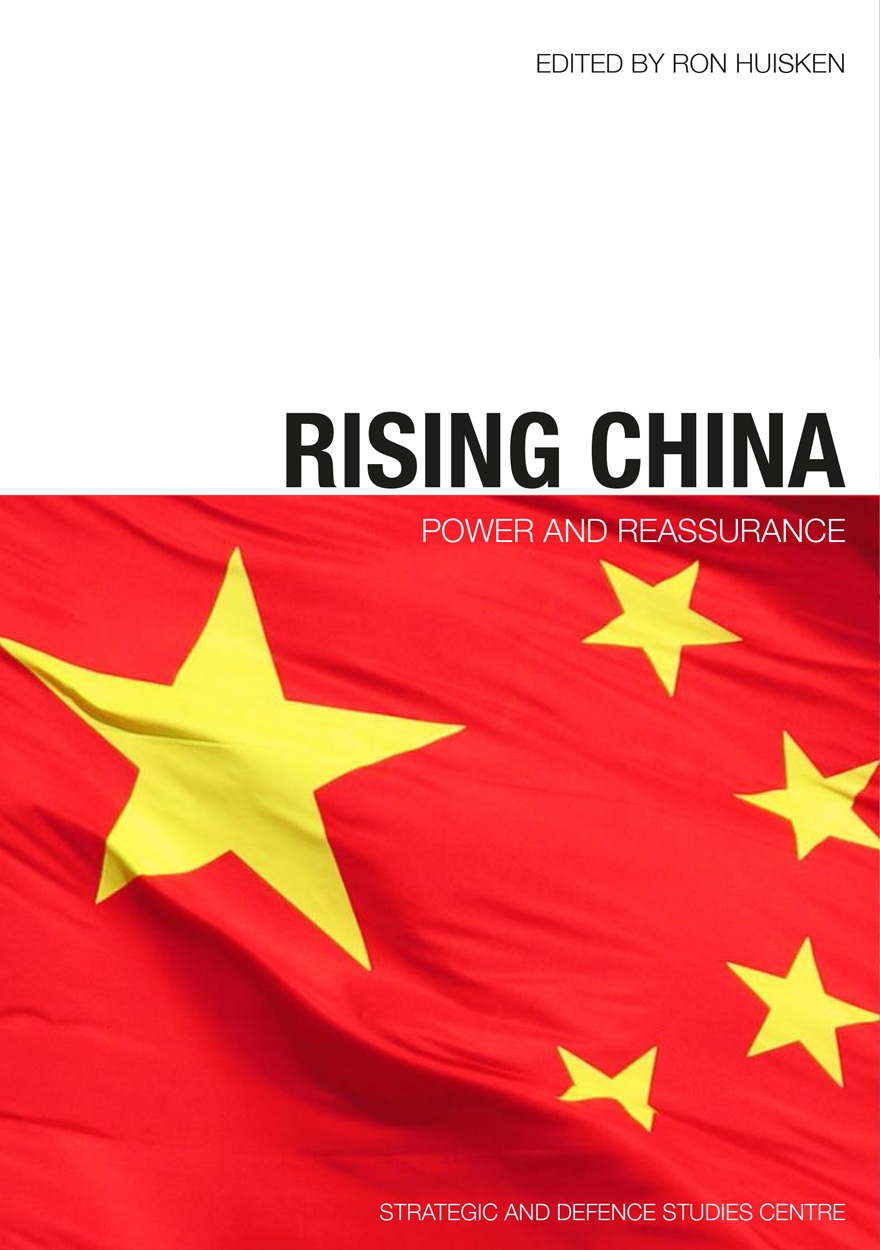
Rising China »
Power and Reassurance
Edited by: Ron Huisken
Publication date: March 2009
Asia looks and feels very different now compared to the days of the Cold War. The sense that Asia now works differently can be traced to a single source – the re-emergence of China. China was the dominant power in greater Asia for most of recorded history. This historical norm was interrupted from the early 19th century, too far into the past to be recognisable and readily accommodated by the actors in today’s international arena. A powerful China feels new and unfamiliar.
Arriving peacefully at mutually acceptable relationships of power and influence that are very different from those that have prevailed for the past half century will be a demanding process. The world’s track record on challenges of this kind is not terrific. It will call for statesmanship of a consistently high order from all the major players, and building the strongest possible confidence among these players that there are no hidden agendas.
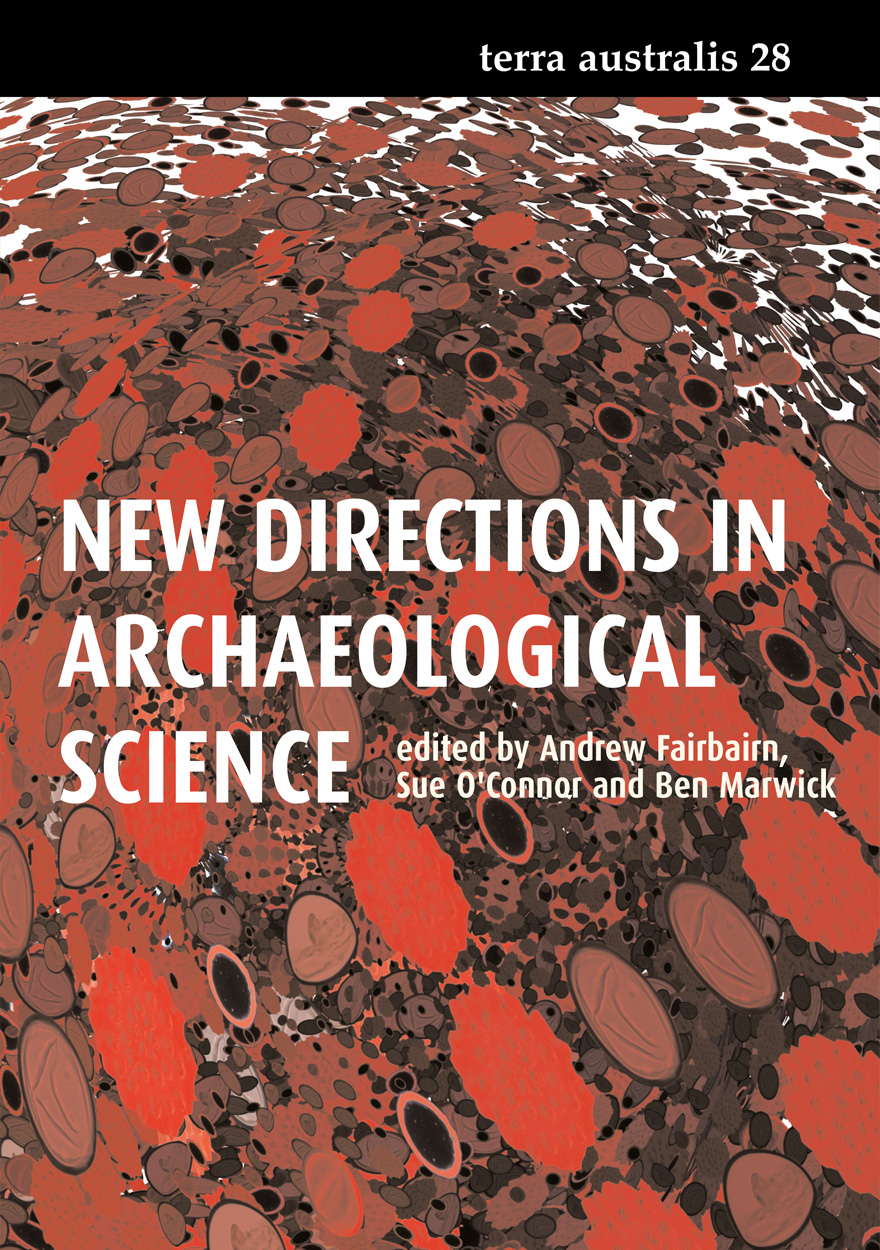
New Directions in Archaeological Science »
Edited by: Andrew Fairbairn, Sue O'Connor, Ben Marwick
Publication date: February 2009
Archaeological Science meetings will have a personality of their own depending on the focus of the host archaeological fraternity itself. The 8th Australasian Archaeometry meeting follows this pattern but underlying the regional emphasis is the continuing concern for the processes of change in the landscape that simultaneously effect and illuminate the archaeological record. These are universal themes for any archaeological research with the increasing employment of science-based studies proving to be a key to understanding the place of humans as subjects and agents of change over time.
This collection of refereed papers covers the thematic fields of geoarchaeology, archaeobotany, materials analysis and chronometry, with particular emphasis on the first two. The editors Andrew Fairbairn, Sue O’Connor and Ben Marwick outline the special value of these contributions in the introduction. The international nature of archaeological science will mean that the advances set out in these papers will find a receptive audience among many archaeologists elsewhere. There is no doubt that the story that Australasian archaeology has to tell has been copiously enriched by incorporating a widening net of advanced science-based studies. This has brought attention to the nature of the environment as a human artefact, a fact now more widely appreciated, and archaeology deals with these artefacts, among others, in this way in this publication.

Humanities Research Journal Series: Volume IX. No. 1. 2002 »
Publication date: January 2009
Humanities Research is an internationally peer-reviewed journal published by the Research School of Humanities at The Australian National University. The Research School of Humanities came into existence in January 2007 and consists of the Humanities Research Centre, Centre for Cross-Cultural Research, National Europe Centre and Australian National Dictionary Centre. Launched in 1997, issues are thematic with guest editors and address important and timely topics across all branches of the humanities.
Download for free
Not available for purchase

Humanities Research Journal Series: Volume VIII. No. 1. 2001 »
Publication date: January 2009
Humanities Research is an internationally peer-reviewed journal published by the Research School of Humanities at The Australian National University. The Research School of Humanities came into existence in January 2007 and consists of the Humanities Research Centre, Centre for Cross-Cultural Research, National Europe Centre and Australian National Dictionary Centre. Launched in 1997, issues are thematic with guest editors and address important and timely topics across all branches of the humanities.
Download for free
Not available for purchase

Humanities Research: Volume XI. No. 1. 2004 »
Publication date: January 2009
Humanities Research is an internationally peer-reviewed journal published by the Research School of Humanities at The Australian National University. The Research School of Humanities came into existence in January 2007 and consists of the Humanities Research Centre, Centre for Cross-Cultural Research, National Europe Centre and Australian National Dictionary Centre. Launched in 1997, issues are thematic with guest editors and address important and timely topics across all branches of the humanities.
Download for free
Not available for purchase

Humanities Research: Volume X. No. 1. 2003 »
Publication date: January 2009
Humanities Research is an internationally peer-reviewed journal published by the Research School of Humanities at The Australian National University. The Research School of Humanities came into existence in January 2007 and consists of the Humanities Research Centre, Centre for Cross-Cultural Research, National Europe Centre and Australian National Dictionary Centre. Launched in 1997, issues are thematic with guest editors and address important and timely topics across all branches of the humanities.
Download for free
Not available for purchase

Humanities Research: Volume X. No. 2. 2003 »
Publication date: January 2009
Humanities Research is an internationally peer-reviewed journal published by the Research School of Humanities at The Australian National University. The Research School of Humanities came into existence in January 2007 and consists of the Humanities Research Centre, Centre for Cross-Cultural Research, National Europe Centre and Australian National Dictionary Centre. Launched in 1997, issues are thematic with guest editors and address important and timely topics across all branches of the humanities.
Download for free
Not available for purchase

The Centrelink Experiment »
Innovation in Service Delivery
Authored by: John Halligan, Jules Wills
Publication date: December 2008
Centrelink was established in 1997 as part of the Howard government’s bold experiment in re-framing social policy and re-shaping service delivery. Centrelink was the embodiment of a key tenet of the Howard vision for public service: a specialised service delivery ‘provider’ agency separated from the policy functions of the ‘purchaser’. Carved out of a monolithic Department of Social Security, Centrelink was established along ‘business lines’ operating 320 service centres and delivering payments to 10 million Australians. Although enjoying ‘monopoly provider’ status, the organisation was required to deliver services to many different clients on behalf of its ‘purchasing departments’ (up to 25 in total) under the terms of quasi-contractual service agreements. It was meant to demonstrate a greater level of both transparency and accountability for the administration of payments amounting to over $60 billion of Commonwealth expenditure. For many years there was a real ‘buzz’ around the Centrelink experiment and staff and clients were generally enthusiastic about the transformation. However, after around eight years, the experiment was reined in and Centrelink was placed under closer ministerial direction and under a new managing department. The experiment continues, but its trajectory reflects the different pressures impacting on such dedicated ‘services delivery agencies’.
John Halligan, Professor of Government at the University of Canberra, is a foremost Australian expert on public sector governance and has published extensively on the evolution, form and behaviour of the public sectors in Australia and overseas. This volume is the culmination of an exhaustive empirical study of the origins and experience of ‘the Centrelink Experiment’. I commend this book to researchers, policy practitioners and students with an interest in policy innovation, change management and the realpolitik of public sector reform.
John Wanna, Sir John Bunting Chair of Public Administration, The Australian National University

The Changing South Pacific »
Identities and Transformations
Edited by: Serge Tcherkézoff, Françoise Douaire-Marsaudon
Publication date: December 2008
The texts collected in this volume take an anthropological approach to the variety of contemporary societal problems which confront the peoples of the contemporary South Pacific: religious revival, the sociology of relations between local groups, regions and nation-States, the problem of culture areas, the place of democracy in the transition of States founded on sacred chiefdoms, the role of ceremonial exchanges in a market economy, and so forth.
Each chapter presents a society seen from a specific point of view, but always with reference to the issue of collective identity and its confrontation with history and change. The collection thus invites the reader to understand how the inhabitants of these societies seek to affirm both an individual identity and a sense of belonging to the contemporary world. In doing so, it informs the reader about the contemporary realities experienced by the inhabitants of the South Pacific, with a view to contributing to an intercultural dialogue between the reader and these inhabitants.

Coup »
Reflections on the Political Crisis in Fiji
Edited by: Brij V. Lal, Michael Pretes
Publication date: December 2008
May 19, 2000. Fiji’s democratically elected multiracial government is hijacked by a group of armed gunmen led by George Speight, and held hostage for fifty days. Suva, the capital, is torched and looted as Speight’s supporters gather on the lawns of the parliamentary complex, dancing, cooking food, celebrating the purported abrogation of the constitution that brought the People’s Coalition government to power. The country is plunged into darkness yet again, enduring the pain of three coups in a period of just thirteen years. The process of healing and reconciliation, symbolised by the enactment of a new Constitution, unanimously approved by Parliament and blessed by the powerful Great Council of Chiefs, lies discarded, as winds of ethnic chauvinism sweep through the countryside, damaging the fragile fabric of multiculturalism that was carefully constructed by so many over many years. The economy is on the brink of collapse, investor confidence has vanished, and the best and the brightest are seeking succour on other shores. Fiji falls victim, yet again, to the prejudice and greed of a section of its people.
This book gathers together a handful of memoirs of those tragic events in Fiji. They were written while the gun was still smoking; personal, anguished reactions of people from all walks of life, concerned about a country they all love but deeply distressed by the developments there. They are first reactions. They will in time become essential building blocks for a larger interpretive framework of academic analysis about origins, processes and impacts. Straight from the heart, these memoirs will be remembered as the people of Fiji and their friends elsewhere contemplate the wreckage and ruin brought about by that act of madness in the month of May 2000.

Dictatorship, Disorder and Decline in Myanmar »
Edited by: Monique Skidmore, Trevor Wilson
Publication date: December 2008
Mass peaceful protests in Myanmar/Burma in 2007 drew the world’s attention to the ongoing problems faced by this country and its oppressed people. In this publication, experts from around the world analyse the reasons for these recent political upheavals, explain how the country’s economy, education and health sectors are in perceptible decline, and identify the underlying authoritarian pressures that characterise Myanmar/Burma’s military regime.

Indigenous Biography and Autobiography »
Publication date: December 2008
In this absorbing collection of papers Aboriginal, Maori, Dalit and western scholars discuss and analyse the difficulties they have faced in writing Indigenous biographies and autobiographies. The issues range from balancing the demands of western and non-western scholarship, through writing about a family that refuses to acknowledge its identity, to considering a community demand not to write anything at all.
The collection also presents some state-of-the-art issues in teaching Indigenous Studies based on auto/biography in Austria, Spain and Italy.
For more information on Aboriginal History Inc. please visit aboriginalhistory.org.au.

Lak Chang »
A reconstruction of Tai identity in Daikong
Authored by: Yos Santasombat
Publication date: December 2008
The Thai—Yunnan Project is proud to present this English-language version of Professor Yos Santasombat’s fascinating ethnography of the Tai in Daikong, southwestern China. It represents a significant contribution to the ethnographic record of the Tai peoples.
The village of Lak Chang is located close to the edge of the Tai world and is increasingly embraced by Chinese influence. Professor Yos skilfully weaves ethnographic and historical writing to chart the course of Lak Chang’s incorporation into the modern Chinese state. This has been a painful history but what emerges in this account is a sense of Tai cultural identity that is vigorous and adaptive.
“The Tai ethnic category is thus a complex and dynamic construct which takes place within the context of changing power relations and socio-economic conditions where the past is reconstructed to give meaning to the present and hope for the future.”
In his account of the labours, rituals and beliefs of the Tai villagers of Daikong, Professor Yos brings contemporary ethnic identity to their life. Among the patchwork paddyfields and haphazard laneways of Lak Chang we come to a greater understanding of how global and regional processes of modernisation are managed and selectively incorporated by one local community.

Negotiating the Sacred II »
Blasphemy and Sacrilege in the Arts
Edited by: Elizabeth Burns Coleman, Maria Suzette Fernandes-Dias
Publication date: December 2008
Blasphemy and other forms of blatant disrespect to religious beliefs have the capacity to create significant civil and even international unrest. Consequently, the sacrosanctity of religious dogmas and beliefs, stringent laws of repression and codes of moral and ethical propriety have compelled artists to live and create with occupational hazards like uncertain audience response, self-censorship and accusations of deliberate misinterpretation of cultural production looming over their heads. Yet, in recent years, issues surrounding the rights of minority cultures to recognition and respect have raised new questions about the contemporariness of the construct of blasphemy and sacrilege. Controversies over the aesthetic representation of the sacred, the exhibition of the sacred as art, and the public display of sacrilegious or blasphemous works have given rise to heated debates and have invited us to reflect on binaries like artistic and religious sensibilities, tolerance and philistinism, the sacred and the profane, deification and vilification.
Endeavouring to move beyond ‘simplistic’ points about the rights to freedom of expression and sacrosanctity, this collection explores how differences between conceptions of the sacred can be negotiated. It recognises that blasphemy may be justified as a form of political criticism, as well as a sincere expression of spirituality. But it also recognises that within a pluralistic society, blasphemy in the arts can do an enormous amount of harm, as it may also impair relations within and between societies.
This collection evolved out a two-day conference called ‘Negotiating the Sacred: Blasphemy and Sacrilege in the Arts’ held at the Centre for Cross Cultural Research at The Australian National University in November 2005. This is the second volume in a series of five conferences and edited collections on the theme ‘Negotiating the Sacred’. The first conference, ‘Negotiating the Sacred: Blasphemy and Sacrilege in a Multicultural Society’ was held at The Australian National University’s Centre for Cross-Cultural Research in 2004, and published as an edited collection by ANU Press in 2006. Other conferences in the series have included Religion, Medicine and the Body (ANU, 2006), Tolerance, Education and the Curriculum (ANU, 2007), and Governing the Family (Monash University, 2008). Together, the series represents a major contribution to ongoing debates on the political demands arising from religious pluralism in multicultural societies.

Agenda - A Journal of Policy Analysis and Reform: Volume 15, Number 4, 2008 »
Authored by: William Coleman, Alex Robson
Publication date: December 2008
Agenda is a refereed, ECONLIT-indexed and RePEc-listed journal of the College of Business and Economics, The Australian National University. Launched in 1994, Agenda provides a forum for debate on public policy, mainly (but not exclusively) in Australia and New Zealand. It deals largely with economic issues but gives space to social and legal policy and also to the moral and philosophical foundations and implications of policy.
Subscribe to the Agenda Alerting service if you wish to be advised on forthcoming or new issues.
Download for free
Not available for purchase

Collaborative Governance »
A new era of public policy in Australia?
Edited by: Janine O'Flynn, John Wanna
Publication date: December 2008
Collaboration has emerged as a central concept in public policy circles in Australia and a panacea to the complex challenges facing Australia. But is this really the cure-all it seems to be? In this edited collection we present scholarly and practitioner perspectives on the drivers, challenges, prospects and promise of collaboration. The papers, first presented at the 2007 ANZSOG Conference, draw on the extensive experience of the contributors in either trying to enact collaboration, or studying the processes of this phenomenon. Together the collection provides important insights into the potential of collaboration, but also the fiercely stubborn barriers to adopting more collaborative approaches to policy and implementation.
The collection includes chapter from public servants, third sector managers, and both Australian and international academics which together make it a stimulating read for those working with or within government. It adds considerably to the debate about how to address current challenges of public policy and provides a significant resource for those interested in the realities of collaborative governance.
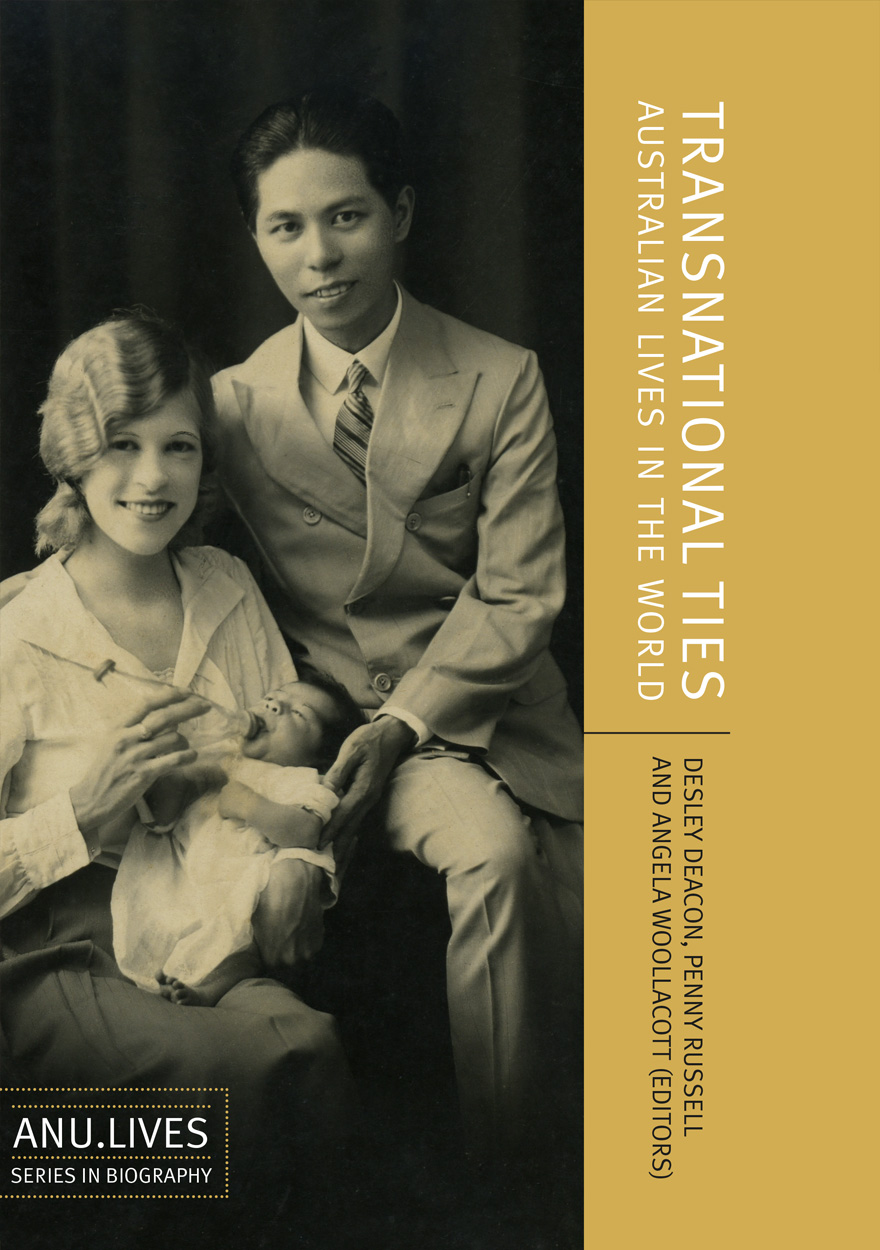
Transnational Ties »
Australian Lives in the World
Edited by: Desley Deacon, Penny Russell, Angela Woollacott
Publication date: December 2008
Australian lives are intricately enmeshed with the world, bound by ties of allegiance and affinity, intellect and imagination. In Transnational Ties: Australian Lives in the World, an eclectic mix of scholars—historians, literary critics, and museologists—trace the flow of people that helped shape Australia’s distinctive character and the flow of ideas that connected Australians to a global community of thought. It shows how biography, and the study of life stories, can contribute greatly to our understanding of such patterns of connection and explores how transnationalism can test biography’s limits as an intellectual, professional and commercial practice.

Islamising Indonesia »
The Rise of Jemaah Tarbiyah and the Prosperous Justice Party (PKS)
Authored by: Yon Machmudi
Publication date: November 2008
The Prosperous Justice Party (PKS) is the most interesting phenomenon in contemporary Indonesian politics. Not only is it growing rapidly in membership and electoral support, it is also bringing a new and markedly different approach to Islamic politics, one which has no precedent in Indonesian history.
Understanding PKS and analysing its political behaviour presents challenges to scholars and observers. This is partly due to the fact that the party represents a new trend within Indonesian Islam which has few parallels with preceding movements.
Yon Machmudi has rendered us a valuable service. In this book, he provides a thoughtful and authoritative context for viewing PKS. He critiques the existing categorisations for Indonesian Islam and points to their inadequacy when describing the PKS and the campus-based Tarbiyah movement from which it sprang. He reworks the santri typology, dividing it into convergent, radical and global substreams. This offers new possibilities for explaining the PKS phenomenon and assists in differentiating between various types of Islamic revivalism in contemporary Indonesia. It also allows a more understanding of the accommodatory stance which PKS has towards the state and other political forces.
Yon’s text provides a good overview of the development of PKS from its Tarbiyah movement origins to its impressive success at the 2004 general elections. It considers the party’s attitude towards the issues of sharia implementation and community welfare and closes by examining the future challenges facing PKS.
It is a well written and authoritative account from a scholar who has done wideranging research on the party.

Public Leadership »
Perspectives and practices
Edited by: Paul `t Hart, John Uhr
Publication date: November 2008
‘Leadership’ is routinely admired, vilified, ridiculed, invoked, trivialised, explained and speculated about in the media and in everyday conversation. Despite all this talk, there is surprisingly little consensus about how to answer basic questions about the nature, place, role and impact of leadership in contemporary society. This book brings together academics from a broad array of social science disciplines who are interested in contemporary understandings of leadership in the public domain. Their work on political, administrative and civil society leadership represents a stock-take of what we need to know and offers original examples of what we do know about public leadership. Although this volume connects scholars living in, and mostly working on, public leadership in Australia and New Zealand, their contributions have a much broader scope and relevance.
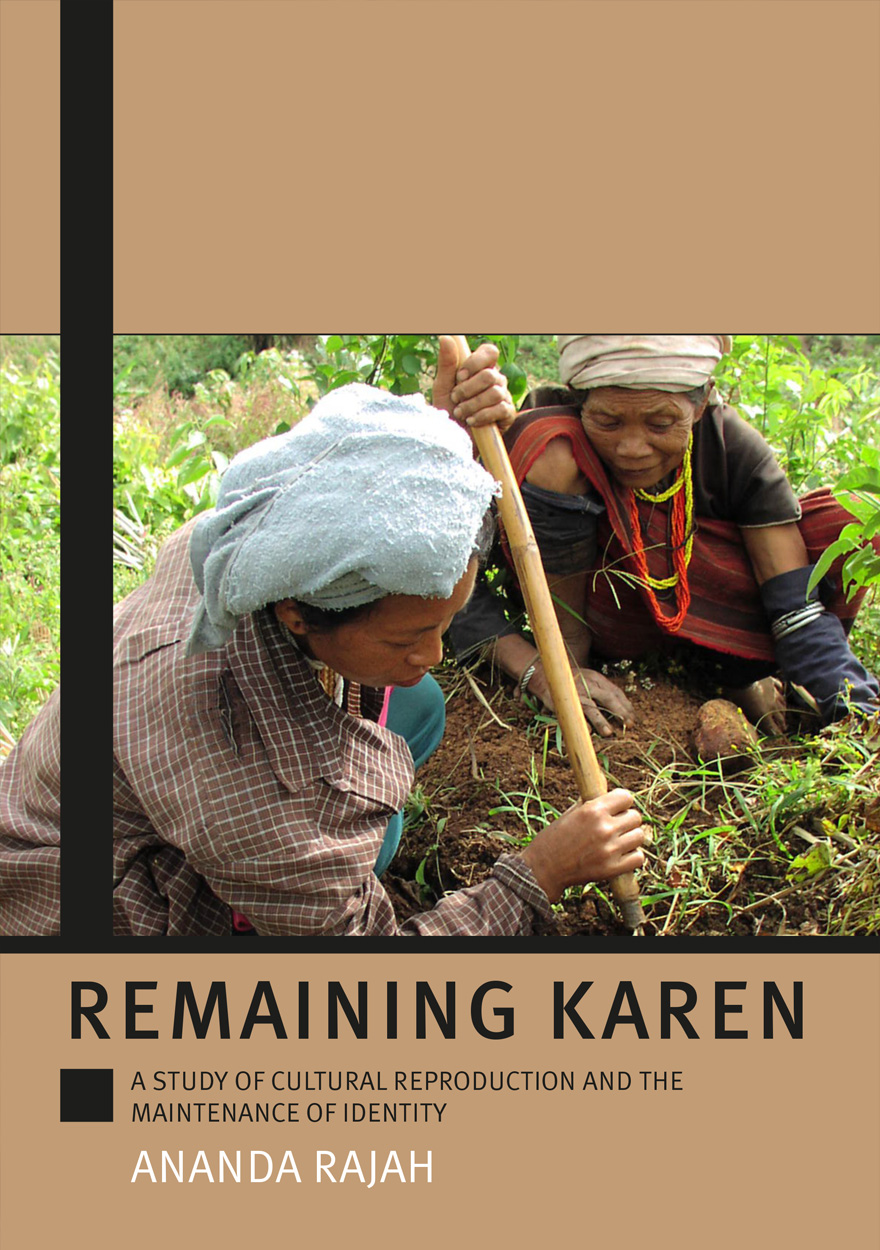
Remaining Karen »
A Study of Cultural Reproduction and the Maintenance of Identity
Authored by: Ananda Rajah
Publication date: November 2008
This publication of Remaining Karen is intended as a tribute to Ananda Rajah and his consummate skills as an ethnographer. It is also a tribute to his long-term engagement in the study of the Karen. Remaining Karen was Ananda Rajah’s first focused study of the Sgaw Karen of Palokhi in northern Thailand, which he submitted in 1986 for this PhD in the Department of Anthropology in the Research School of Pacific and Asian Studies at The Australian National University. It is a work of superlative ethnography set in an historical and regional context and as such retains its value to the present.

Australian Humanities Review: Issue 45, 2008 »
Edited by: Monique Rooney, Russell Smith
Publication date: November 2008
Australian Humanities Review is a peer-reviewed interdisciplinary journal featuring articles, essays and reviews focusing on a wide array of topics related to literature, culture, history and politics.
Download for free
Not available for purchase
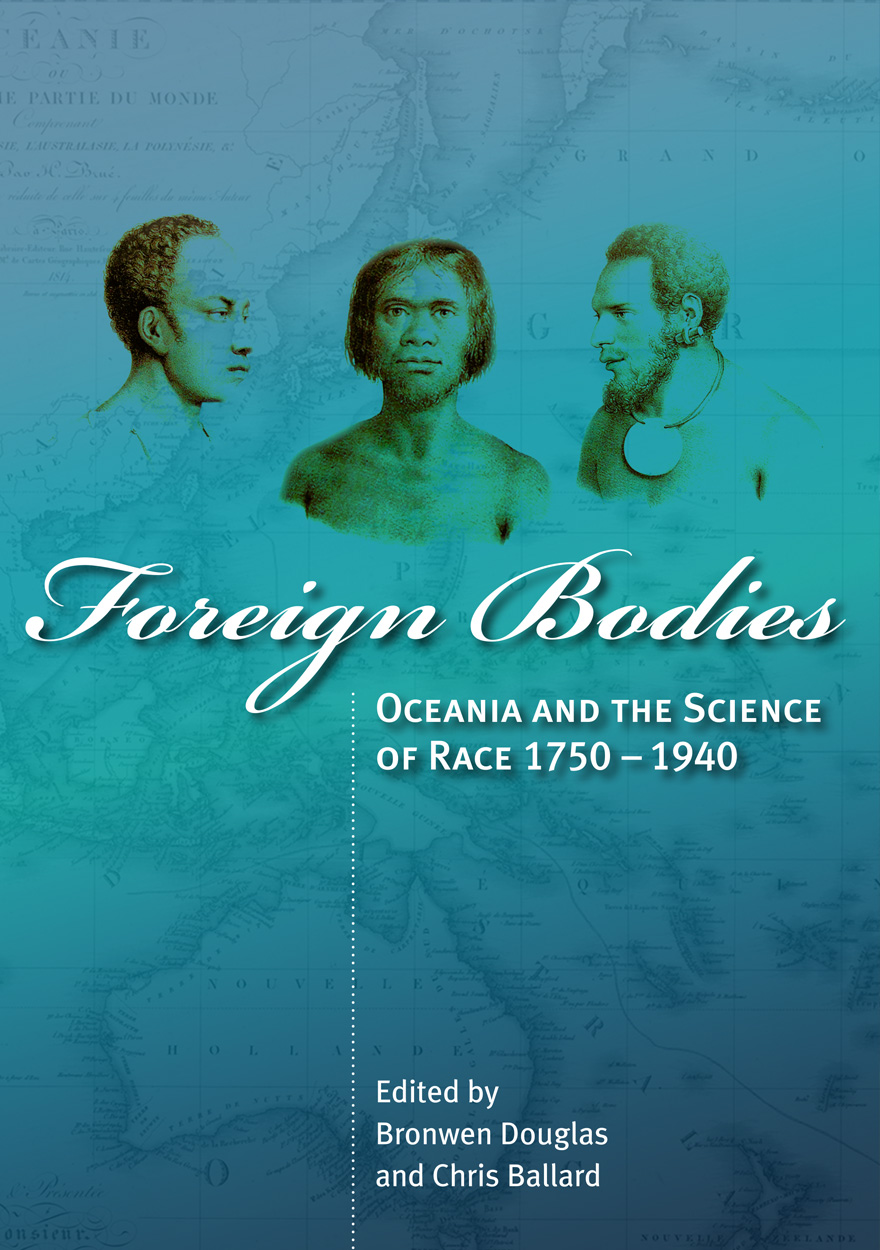
Foreign Bodies »
Oceania and the Science of Race 1750–1940
Edited by: Bronwen Douglas, Chris Ballard
Publication date: October 2008
From the 18th century, Oceania became the principal laboratory of raciology for scholars, voyagers, and colonisers alike. By juxtaposing encounters and theory, this magisterial book explores the semantics of human difference in all its emotional, intellectual, religious, and practical dimensions. The argument developed is subtle, engrossing, and gives the paradigm of ‘race’ its full use value. Foreign Bodies is a model of analysis and erudition from which historians of science and everyone interested in intercultural relations will greatly profit.
— Claude Blanckaert, CNRS (Centre Alexandre Koyré), Paris, and Honorary President, French Society for the History of the Science of Man



